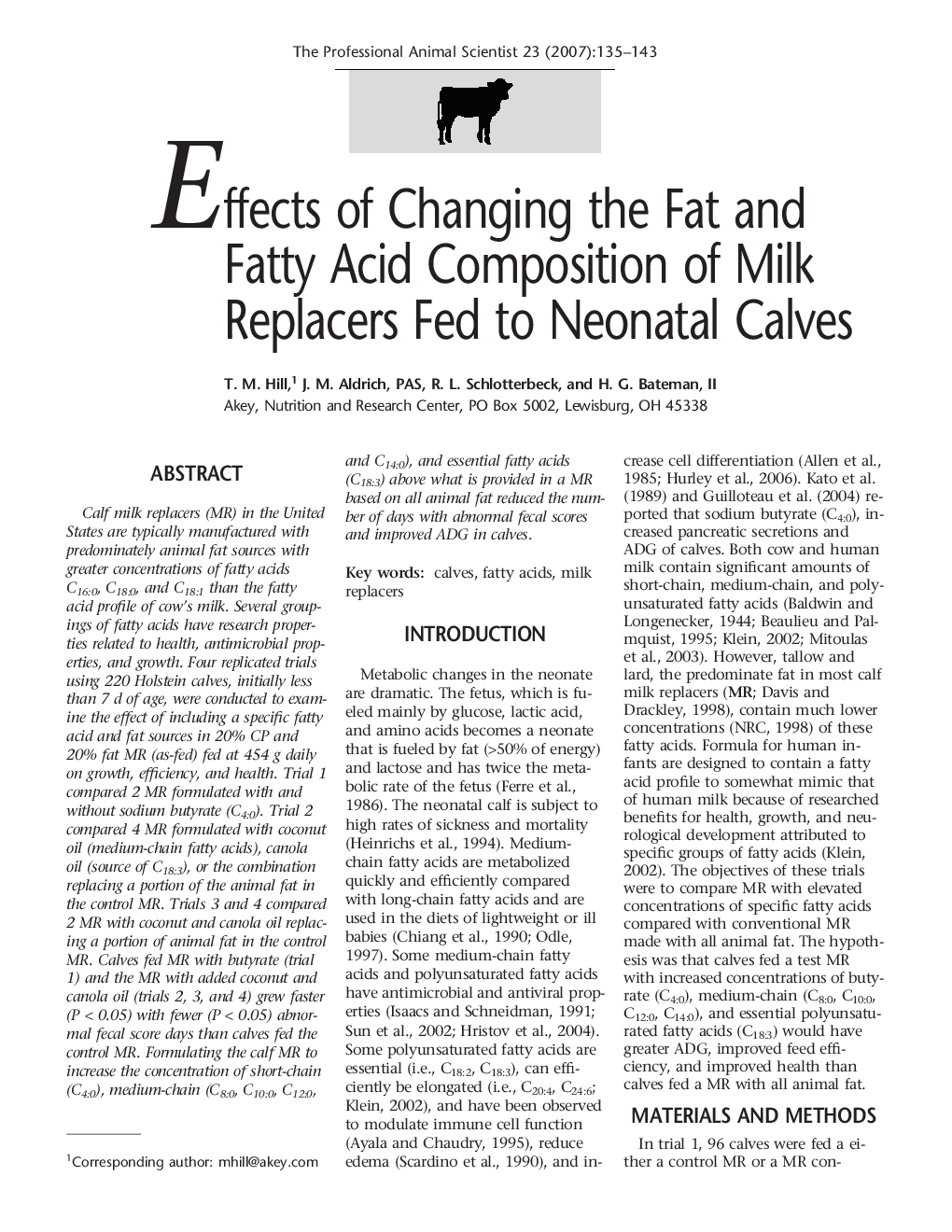| Article ID | Journal | Published Year | Pages | File Type |
|---|---|---|---|---|
| 2454652 | The Professional Animal Scientist | 2007 | 9 Pages |
Abstract
Calf milk replacers (MR) in the United States are typically manufactured with predominately animal fat sources with greater concentrations of fatty acids C16:0, C18:0, and C18:1 than the fatty acid profile of cow's milk. Several groupings of fatty acids have research properties related to health, antimicrobial properties, and growth. Four replicated trials using 220 Holstein calves, initially less than 7 d of age, were conducted to examine the effect of including a specific fatty acid and fat sources in 20% CP and 20% fat MR (as-fed) fed at 454Â g daily on growth, efficiency, and health. Trial 1 compared 2 MR formulated with and without sodium butyrate (C4:0). Trial 2 compared 4 MR formulated with coconut oil (medium-chain fatty acids), canola oil (source of C18:3), or the combination replacing a portion of the animal fat in the control MR. Trials 3 and 4 compared 2 MR with coconut and canola oil replacing a portion of animal fat in the control MR. Calves fed MR with butyrate (trial 1) and the MR with added coconut and canola oil (trials 2, 3, and 4) grew faster (P < 0.05) with fewer (P < 0.05) abnormal fecal score days than calves fed the control MR. Formulating the calf MR to increase the concentration of short-chain (C4:0), medium-chain (C8:0, C10:0, C12:0,and C14:0), and essential fatty acids (C18:3) above what is provided in a MR based on all animal fat reduced the number of days with abnormal fecal scores and improved ADG in calves.
Keywords
Related Topics
Life Sciences
Agricultural and Biological Sciences
Animal Science and Zoology
Authors
T.M. Hill, J.M. PAS, R.L. Schlotterbeck, H.G. II,
